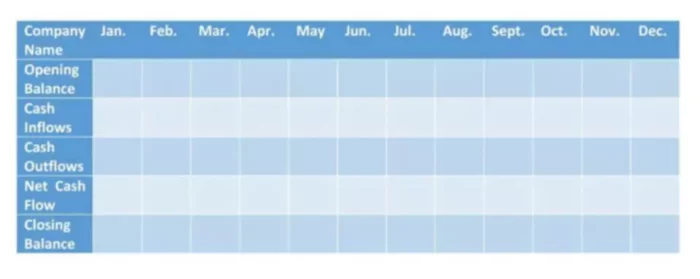
Certification requirements vary, with some roles requiring additional educational requirements above the bachelor’s degree and successful completion of rigorous examinations. The most common are the certified internal auditor (CIA), certified management accountant (CMA), and certified public accountant (CPA). In most cases, accountants use generally accepted accounting principles (GAAP) when preparing financial statements in the U.S.
We and our partners process data to provide:
In their search, they took into account the average annual salaries for the profession, home and rent prices, and availability of accounting jobs at companies in these cities. Generally speaking, however, attention to detail is a key component in accountancy, since accountants must be able to diagnose and correct subtle errors or discrepancies in a company’s accounts. The ability to think logically is also essential, to help with problem-solving. Mathematical skills are helpful but are less important than in previous generations due to the wide availability of computers and calculators. Accounting history dates back to ancient civilizations in Mesopotamia, Egypt, and Babylon.
Ask Any Financial Question
The majority of new public accountants obtain MBA or MAcc degrees since the difference between stopping at 150 hours and going ahead and finishing the degree is usually minimal. Another important task for many accountants is preparing documents like tax forms. Taxes may require in-depth knowledge, particularly for businesses and self-employed individuals, and an accountant can help make that process easier and more accurate. Document preparation can also be time-consuming, so many find it more profitable to hire a certified public accountant.
Ethical Standards and Guiding Principles
Finance Strategists is a leading financial education organization that connects people with financial professionals, priding itself on providing accurate and reliable financial information to millions of readers each year. Our team of reviewers are established professionals with decades of experience in areas of personal finance and hold many advanced degrees and certifications. Accountants play a pivotal role in the financial management of businesses, offering indispensable services that contribute to growth and profitability. Additionally, audits carried out by accountants can highlight potential areas of improvement in the company’s financial management. Since everything an accountant calculates is based on specific formulas, it helps to be good at math. However, that does not mean someone interested in accounting as a profession needs to be a math whiz or possess the ability to crunch numbers in his head.
What does an accountant do in a business?
- Do you get satisfaction from following guidelines, standards, or rules to a T?
- An accountant reviews a business’s or individual’s financial data to help them manage their financial health.
- Furthermore, with their expert knowledge of tax law, accountants are adept at minimizing tax liability and identifying potential tax deductions.
An accountant’s duties will depend on where they work and what the company needs. Preparing financial statements is one of the most common responsibilities and is usually required as the starting point for most other tasks. When an accountant prepares a financial statement or reviews a company’s existing financial accounts, they may check for accuracy, regulatory compliance, areas of excess spending, and anything else the client may want to flag. Accounting is the process of recording financial transactions pertaining to a business.
She has performed editing and fact-checking work for several leading finance publications, including The Motley Fool and Passport to Wall Street. A financial professional will offer guidance based on the information provided and offer a no-obligation call to better understand your situation. Someone on our team will connect you with a financial professional in our network holding the correct designation and expertise. Our writing and editorial staff are a team of experts holding advanced financial designations and have written for most major financial media publications. Our work has been directly cited by organizations including Entrepreneur, Business Insider, Investopedia, Forbes, CNBC, and many others.

Accountants handle everything from payroll processing and bookkeeping to financial forecasting and auditing. Accountants may be held liable for paying uninsured losses to creditors and investors in the case of a misstatement, negligence, or fraud. Take our free career test to find out if accountant is one of your top career matches.
Incoming professionals must then work at least two years in an entry-level accounting role, such as payroll assistant or bookkeeper. Accountants handle a company’s financial records, analyzing data to verify businesses are following financial laws and efficient practices. The rise of technology and automation is changing the landscape of accounting.
The first professional association for accountants, the American Association of Public Accountants, was formed in 1887, and CPAs were first licensed in 1896.Accounting grew as a profession during the Industrial Revolution. This was largely due to the growing complexity of businesses and the demands of shareholders and bondholders for evidence of the financial well-being of the companies they invested in. Many accountants choose to become CPAs because the designation is considered the gold standard in the accounting profession. In the United States, certification requirements for accountants vary from state to state. But one requirement is universal—the passing of the Uniform Certified Public Accountant Examination. This exam is written and graded by the American Institute of Certified Public Accountants (AICPA).
A client may hire an accountant to assist with these skills when preparing their taxes. Accountants review all of a company’s financial records, making sure a business enacts cost-effective, efficient and compliant processes. This way, organizations can develop workflows to generate the most revenue possible while staying within legal boundaries. Most public accountants start as members of teams that conduct audits, prepare taxes, or analyze clients’ management structure. For the ones who thrive, upward mobility is nearly unlimited as they progress into leadership roles with increasing responsibility.
Accountants need a mix of technical and soft skills, which helps them stay updated on new trends to make the most of accounting technology. This can include a variety of responsibilities, with everything from reporting financial transactions and catching excess spending to preparing documents for taxes and compliance. Accountants who are trained in specific industries can also offer insight into financial forecasting, risk management, and other skills to help businesses create profit-maximising strategies. An accountant reviews a business’s or individual’s financial data to help them manage their financial health.
However, there are drawbacks as well, such as the cost of services, dependence on the accountant’s expertise and integrity, and the potential for human errors. Forensic accountants investigate financial crimes such as embezzlement, fraud, and other complex financial disputes. An accountant is a critical cog in the financial machinery of any business, small or large. Accountants work with companies, governments, and non-profits, or set up private practices.
They may take on various roles, from preparing taxes to ensuring compliance with all laws and regulations and identifying areas of excess spending. While managing and interpreting numerical financial data is a significant part of an accountant’s role, they do much more than that. An accountant also ensures regulatory compliance, assists in strategic financial planning, conducts audits, and offers expert advice on tax-related matters. Individuals interested in pursuing a career in one of these fields should carefully consider their interests, strengths, and career goals to determine the most suitable path for them. The work environment for accountants can be fast-paced and dynamic, especially during busy periods such as tax season or financial reporting deadlines.
At larger companies, there might be sizable finance departments guided by a unified accounting manual with dozens of employees. The bottom line is that accounting is a stable career, and you likely won’t have trouble finding a job that’s right for you. “From big tech to the FBI to the NBA, every single industry and every single company needs an accountant,” Barentzen says. Ultimately accountants build trust with consumers and investors, forming what Heller calls the “bedrock of trust” in the economy. If this appeals to you—and you’re drawn to the types of roles and responsibilities described above—accounting could be the right path. Here’s everything you need to know about how to become an accountant, what kinds of accounting jobs you can find, and why you should consider a career in the field.
High-end management consultants tend to have a Master of Business Administration (MBA) or Master of Accountancy degrees. Almost without exception, public accounting firms want new hires to have passed the Certified Public Accountant (CPA) exam, or at the very least, be eligible to take it. This requires 150 semester hours of postsecondary education, which is more than a bachelor’s degree but can be obtained without completing a master’s degree.
Financial accounting refers to the processes used to generate interim and annual financial statements. The results of all financial transactions that occur during an accounting period are summarized in the balance sheet, income statement, and cash flow statement. The financial statements of most companies are audited annually by an external CPA firm. But that’s only part of the picture, a 2022 Deloitte poll revealed that 82% of hiring managers for accounting and financial roles at public companies and 69% at private companies were struggling with talent retention. The American Institute of Certified Public Accountants (AICPA) reports that fewer people are graduating with accounting degrees, and the number of people taking and passing the CPA exam is declining. An accountant can help with tax preparation and planning by offering expertise on tax information, interpreting financial records, helping clients to organise their financial records, and preparing tax documents.
In a nutshell, the accountant understands and interprets a company’s financial health through the combination of his knowledge of numbers and accounting principles. Accountants can use several different software and tools, including accounting software like FreshBooks, which offers features for expense tracking, recording revenue, doing financial reports, and creating and tracking invoices. Financial calendars are also helpful for keeping track of important financial deadlines. Although many of the responsibilities of an accountant remain consistent, the tools available are changing rapidly with the emergence of new technologies.
However, lenders also typically require the results of an external audit annually as part of their debt covenants. Therefore, most companies will have annual audits for one reason or another. By 2031, employment of accountants and auditors is expected to grow 6%, and there will be more than 135,000 job openings in the field each year, according to the U.S. Many of the mundane accounting tasks, like manual data entry and calculations, have been taken over by artificial intelligence, machine learning, natural language processing, and other innovations.

